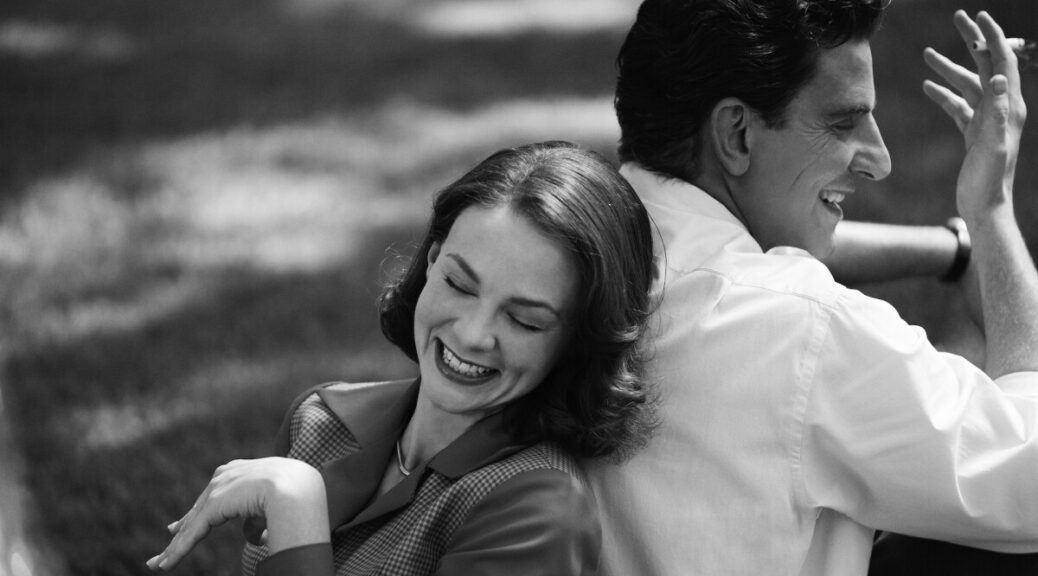Maestro
by George Wolf
This time of year, we normally hear the term “Oscar bait” as a bad thing.
It might be the worst thing you can say about Bradley Cooper’s Maestro, a film that is grand and showy, meticulously assembled and clearly proud of the vision it brings to the screen.
And it should be proud, as Oscar and other well-earned award considerations will no doubt start piling up soon.
Cooper recently detailed his years of study as a conductor, as part of the preparation to write, direct and star in this Leonard Bernstein biopic. That type of well-timed admission may evoke some eye rolling, but the onscreen results of his commitment are pretty damn hard to deny.
From the opening sequence, Cooper’s camera sings with fluidity, teaming with Matthew Libatique’s exquisite cinematography and the maestro’s own rapturous music for thrilling evocations of creativity and joy, longing and heartache. Aspect ratios and color palettes change as Bernstein’s legend grows, while Cooper and co-writer Josh Singer (First Man, The Post, Oscar winner for Spotlight) ground it all in the endlessly compelling relationship between Leonard and his wife, actress Felicia Montealegre Bernstein (Carey Mulligan).
Interviews with Leonard organically fill in the necessary career details, while the moving and nuanced performances from Cooper and Mulligan draw us into the complexities of the marriage. Cooper’s “Lenny” – buoyed by amazing age effects from the makeup department – is a force of nature, overflowing with musical genius, charm and ego, capable of both effervescent affection and a coldness that could reduce others to a life “surviving on what he could give.”
But as much as this movie is about the titular Maestro, a glorious Mulligan picks up the baton and walks off with it.
Felicia becomes our window into this mesmerizing world, and we feel her waves of love and sorrow as Leonard’s life as a closeted gay man chips away at her early declarations of guiltless freedom. It is Leonard’s emotional distance that hurts the most, and Mulligan conveys the daggers with heartbreaking grace.
Say what you will about Cooper’s apparent campaigning, but his generosity as both an actor and a director is never in doubt, and his film is better for it. Cooper’s instincts for construction have also grown exponentially since A Star Is Born (his stellar directing debut). Frame after frame is a wonder of style and storytelling, including an unforgettable extended take of simmering intensity and visual contrast that rivals the emotional wallop of Marriage Story‘s famous soul-baring confrontation.
While several layers of polish are indeed evident, Maestro is a film that soars early and often, via moments of glamorous cinematic muscle-flexing and intimate soul searching. It is as much about a great artist as it about the sacrifices great art often demands from both the artist and those who are closest to them. It’s a celebration of a legend and of a legendary bond, a sublime piece of moviemaking that deserves a standing O.


